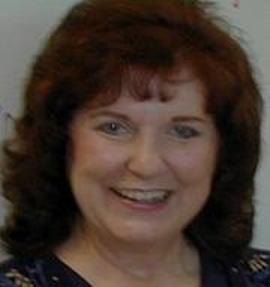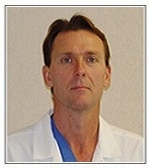 Here are eight suggestions for ambulatory surgery center operating room efficiency.
Here are eight suggestions for ambulatory surgery center operating room efficiency. 1. Teach staff to multitask. Successful ambulatory surgery centers are able to optimize profitability by keeping a lean staff. However, the ASC must still be efficient with the small team available. Teach employees to multitask so they are able to help where needed on a daily basis.
"We hire the minimum necessary full-time staff and all are expected to multitask," said Evalyn Cole, CEO and administrator of Spine Surgery Center of Eugene (Ore.). "Then we fill in with per diem staff when there isn't enough full time staff to cover the cases."
The staff at Central Maine Orthopaedics ASC in Auburn is also cross-trained and agrees to flexible responsibilities when they join the team. This process also allows existing staff members to cover for others who are on vacation and stay productive when their usual surgeon takes time off.
"Our OR efficiencies are based on a staff that is flexible with cross training so there aren't any hard lines between the roles," said Anne Marie Kayashima of Central Maine Orthopaedics ASC. "It keeps the patients
 flowing through the system. There is a whole lot of preparation that goes into our days, and we want to make sure every responsibility is filled. We also see that when staff members are well versed in different parts of the process they can help us improve those processes in the clinic for patients who will eventually need surgery."
flowing through the system. There is a whole lot of preparation that goes into our days, and we want to make sure every responsibility is filled. We also see that when staff members are well versed in different parts of the process they can help us improve those processes in the clinic for patients who will eventually need surgery."2. Huddle to discuss surgical cases beforehand. The clinical team should come together every day to discuss upcoming cases so everyone understands what to expect. The huddles will include the director of nursing, director of operating rooms, operating room charge nurse and other representatives from each department.
"They go over the next day's schedule so everyone is on the same page about how things will play out," said Kelly Doyle, CEO of Rothman Orthopaedic Specialty Hospital in Philadelphia. "They make sure we have everything we need for the next day's surgery and go over the game plan. It's very effective."
This is particularly helpful for orthopedics-driven cases since each case requires a different set of materials and implants.
"We are implanting things quite often and miscommunication can really slow things down or cause an issue," Ms. Doyle said. "We really have to make sure we don't miss a beat. There are some things that are out of our control — such as a patient running late — but we want to make sure we do everything in our power not to cause a delay."
3. Purchase surgeon lunches. When surgeons are bringing several cases in a row, or performing cases over the lunch hour, ASC administrators can keep things running on schedule by catering in lunch. Surgeons also appreciate the gesture, which can raise surgeon satisfaction for both investors and non-investors.
"We provide lunch for surgeons and staff in our center on busy surgery days when they can't get away to buy lunch," Ms. Cole said. "We contracted with a local private lady caterer, who sets up the menu for a month in advance. The staff can bring their lunch on days they don't prefer what's on the menu, and this has alleviated a daily scramble to order lunches and reduced our costs."
 4. Standardize equipment trays and sterilization. Poorly-managed supplies and equipment lead to increased sterilization and slow turnaround times. When supplies and equipment are standardized ASCs can move through cases more efficiently. Many surgery centers have just enough trays available to complete a few cases before the sterilization process begins. This slows down the turnovers and may end up costing the ASC more in the long run due to decreased efficiency.
4. Standardize equipment trays and sterilization. Poorly-managed supplies and equipment lead to increased sterilization and slow turnaround times. When supplies and equipment are standardized ASCs can move through cases more efficiently. Many surgery centers have just enough trays available to complete a few cases before the sterilization process begins. This slows down the turnovers and may end up costing the ASC more in the long run due to decreased efficiency."ASCs sometimes for budgetary reasons don't have enough trays, so they are forced to sterilize those trays for turnovers. This can create problems with turnover times and infection control," said Jeff Bernhardt, Clinical Director at Main Street Specialty Surgery Center. "You might have to have enough trays to get well into the third case before beginning the sterilization process. We rarely have to delay a case because of sterilization issues."
Mr. Bernhardt also uses standardized custom packs and automated fluid removal. "You can't have pails or bottles of contaminated fluid carried down the hallway; you have to have automated draining systems," he said. "This is especially important if you have orthopedics cases in your ASC."
5. Promote a dialogue between the OR and PACU. While communication throughout the ASC is important, it's particularly essential between the operating room staff and post-anesthesia care unit. Sharp communication can mean a few minutes difference between each case because the staff members are alert to patient hand-offs and adequately prepared.
"If the PACU isn't ready to admit a patient and the anesthesia staff needs to wait around, that delays them getting onto their next case," said Mary Sturm, senior vice president of clinical operations at Surgical Management Professionals. "In our ASCs, the OR calls ahead to the recovery room when they are a few minutes away from bringing the patient. Then, the nurses are ready and waiting for us to admit the patient into the PACU."
Right after the anesthesiologist or CRNA hands the patient over to the PACU they can immediately go to admissions and retrieve the next patient.
6. Allow for early starts. Instead of adding cases at the end of the day, Mr. Bernhardt allows surgeons to add additional cases in at the beginning of the day to keep clinical times moving smoothly. This allows staff members to anticipate when they will be leaving the center each day. Also everyone must agree to the meaning of "Start Time." Their start time is when the patient enters the OR room.
"We have three early start rooms, which will normally start at 7:30 a.m.," he said. "Surgeons can add cases before their clinical hours; I oftentimes add a microdiscectomy or a quick arthroscopy in the morning. We can do two cases at 6:30 a.m. and one case at 7 a.m. starting time. The flexibility is in the schedule and not having any gaps during the day, you can allow early cases in the morning to drive additional patient volume."
 7. Make sure proper equipment is available. Equipment efficiency is one of the most important elements for making sure a case runs smoothly. Have the proper equipment available and make sure there is a replacement if necessary. Your nurse should be in charge of coordinating these materials before the case begins.
7. Make sure proper equipment is available. Equipment efficiency is one of the most important elements for making sure a case runs smoothly. Have the proper equipment available and make sure there is a replacement if necessary. Your nurse should be in charge of coordinating these materials before the case begins."If, for example, a certain cervical retractor isn't available, the nurse should communicate that to the physician and have alternative options ready," said Brian R. Gantwerker, MD, of The Craniospinal Center of Los Angeles. "All it really takes is a couple of hours when setting up the spine service to go over preferences. Make sure all surgeons are present so there is unification of practice; it will make the service line more efficient because there will be less hunting for different equipment."
8. Allow surgeons two rooms if possible. If your surgery center has the ability, coordinate two rooms for a single surgeon so they can go back and forth on short cases such as cataracts and arthroscopies. This system allows staff members to prepare one room while surgeons are performing cases in the other, and then vice versa.
"If you can't have two rooms for one surgeon, you have to turnover cases in the same room," said Sheila Stone, a surgery consultant at Soyring Consulting. "In that situation, standardizing the process streamlines the surgeries to make things quicker. You should only open the supplies for cases you really need, and have the surgical tech help clean the room after the cases. Whoever is free should also jump in; nobody is too good to mop the floor."
More Articles on ASC Issues:
When ACOs Come to Town: Q&A on Options for ASCs With Jon Friesen of Nueterra
How Does Sequestration Impact ASC Medicare Reimbursement?
5 Weekly Benchmarks for ASCs to Track
